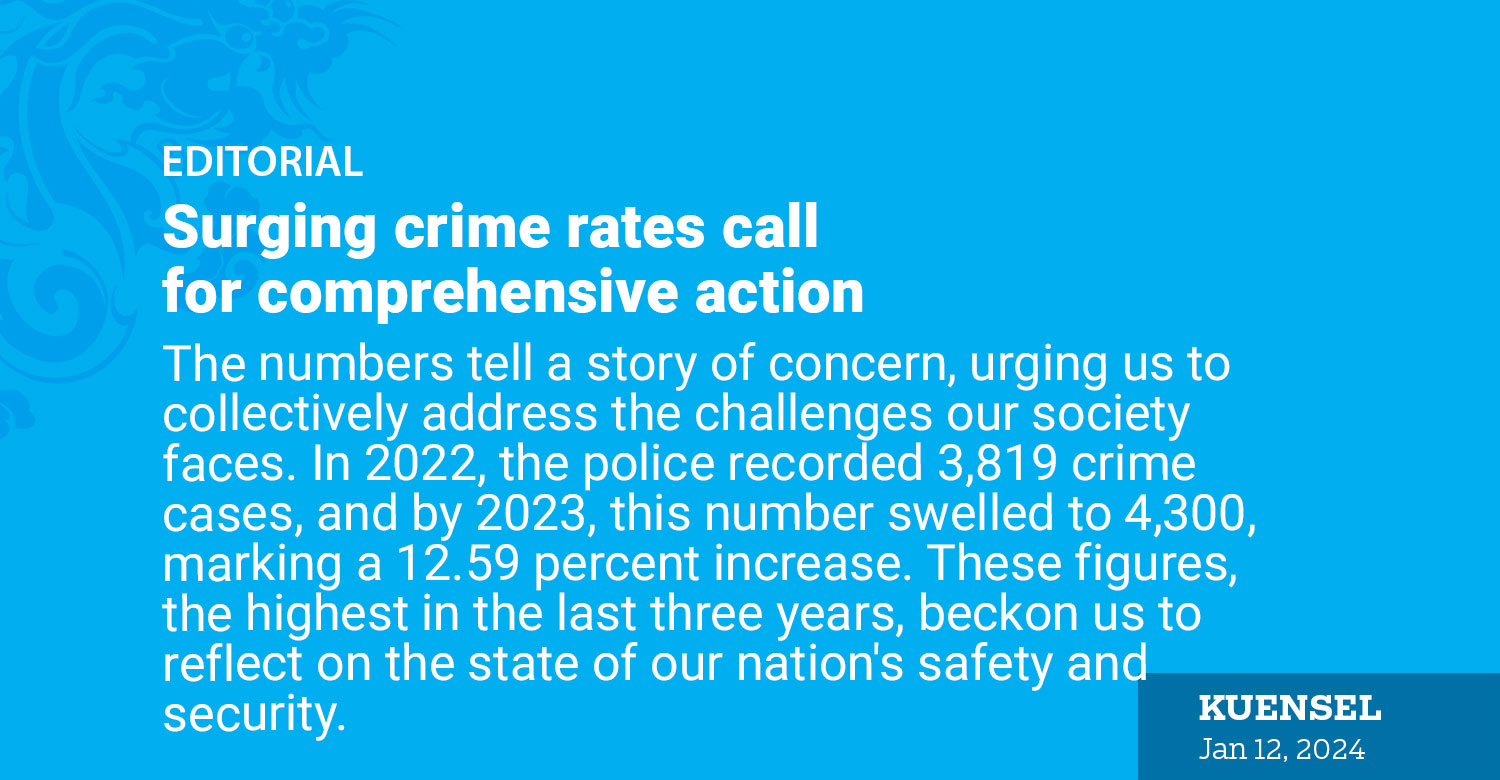The numbers tell a story of concern, urging us to collectively address the challenges our society faces. In 2022, the police recorded 3,819 crime cases, and by 2023, this number swelled to 4,300, marking a 12.59 percent increase. These figures, the highest in the last three years, beckon us to reflect on the state of our nation’s safety and security.
While the overall increase in reported cases is alarming, a closer look at the data reveals nuances that guide us in our quest for solutions. Instances of battery and larceny have witnessed a decline, a testament to the efficacy of certain preventive measures or heightened public awareness. In 2023, battery cases decreased by 415 compared to the previous year, showing progress in specific areas of law enforcement.
However, amidst this positive shift, a daunting challenge looms large—the significant surge in substance abuse cases. From 761 in 2022, the recorded cases skyrocketed to 1,566 in 2023, posing a pressing concern that demands our immediate attention. The implications of such an increase are profound, affecting not only the individuals involved but also the fabric of our society as a whole.
In responding to this reality, we must embrace a multifaceted approach. Education becomes our first line of defense, as we embark on comprehensive programmes to enlighten our citizens about the far-reaching consequences of criminal activities, particularly substance abuse. This knowledge, disseminated through schools, community organizations, and the media, empowers our society to make informed choices and resist the allure of illegal behaviours.
Community policing emerges as a cornerstone of this approach, fostering trust between law enforcement and citizens. When communities actively engage in crime prevention, we forge a united front against criminal activities. Reporting suspicious activities becomes not just a civic duty but also a shared responsibility for the well-being of our neighborhoods.
Yet, addressing crime goes beyond enforcement; it necessitates a commitment to rehabilitation and treatment. Individuals caught in the web of substance abuse require our support and understanding. Rehabilitation programmes, strengthened by collaborations with healthcare professionals and NGOs, can guide them toward a path of recovery and reintegration into society.
Our law enforcement strategies must evolve, adapting to the changing landscape of criminal activities. Intelligence-led policing allows us to identify and dismantle specific criminal networks. Allocation of resources based on the geographical distribution of crime ensures that our efforts are targeted and effective.
Our youth, the custodians of our future, need avenues for positive engagement. Investing in their education, skill development, and employment opportunities becomes not only a crime prevention strategy but also an investment in the resilience of our society.
In tandem with these measures, a periodic review of our policies and legislative frameworks can ensure that they remain agile and responsive to emerging challenges. Alternative approaches, such as diversion programmes for non-violent offenders, can provide a more nuanced and rehabilitative response to the complex issue of crime.
We are at a crossroads, where the choices we make today will shape the safety and security of generations to come. It is not merely a fight against crime but a collective effort to safeguard the essence of our society.


